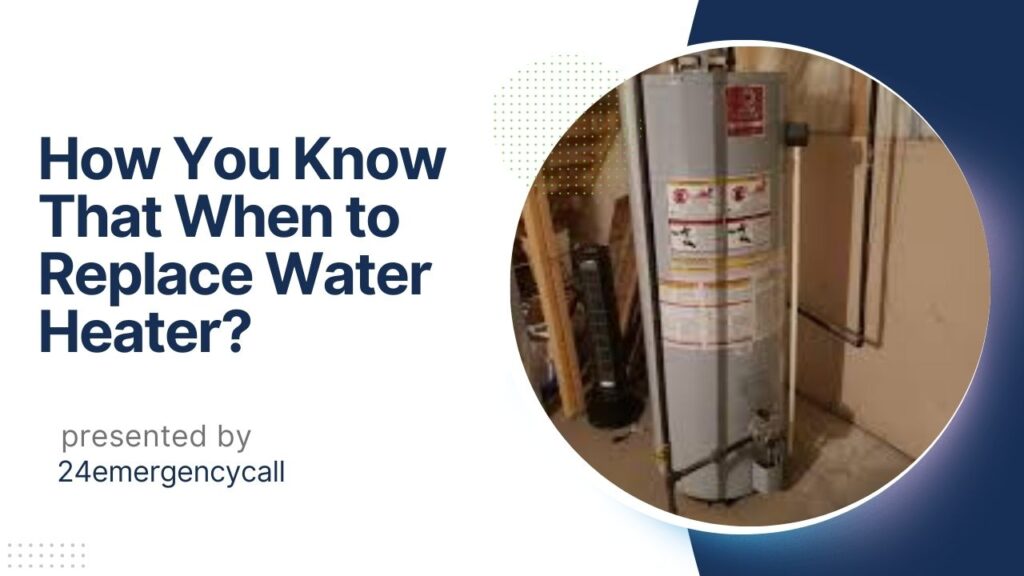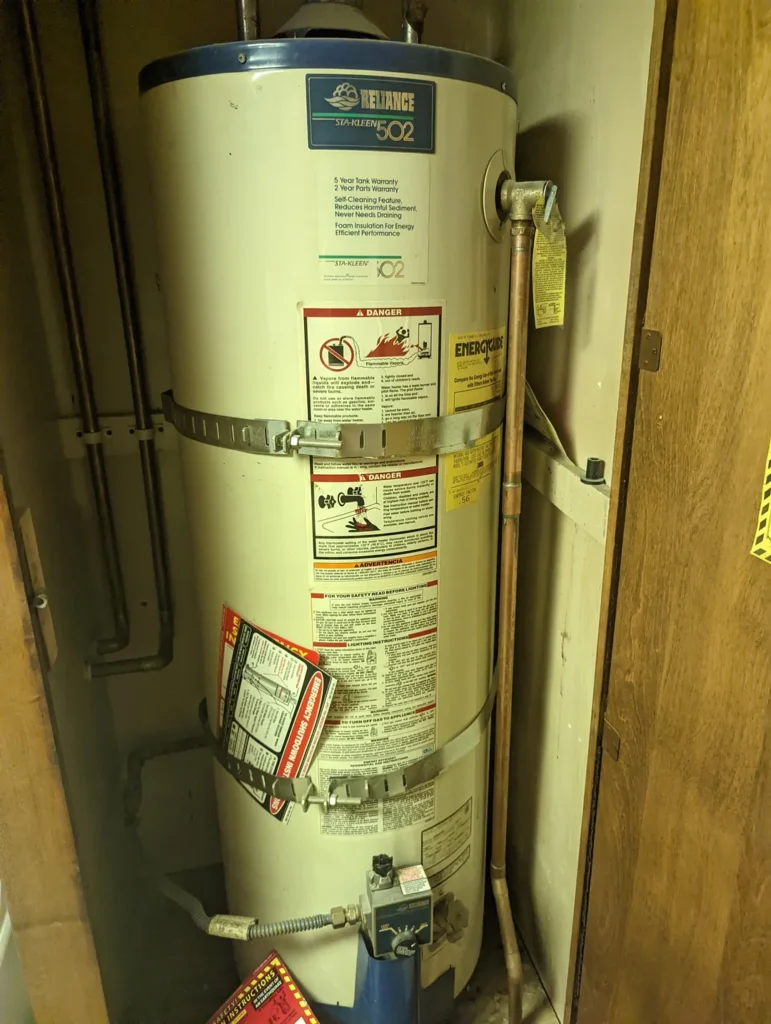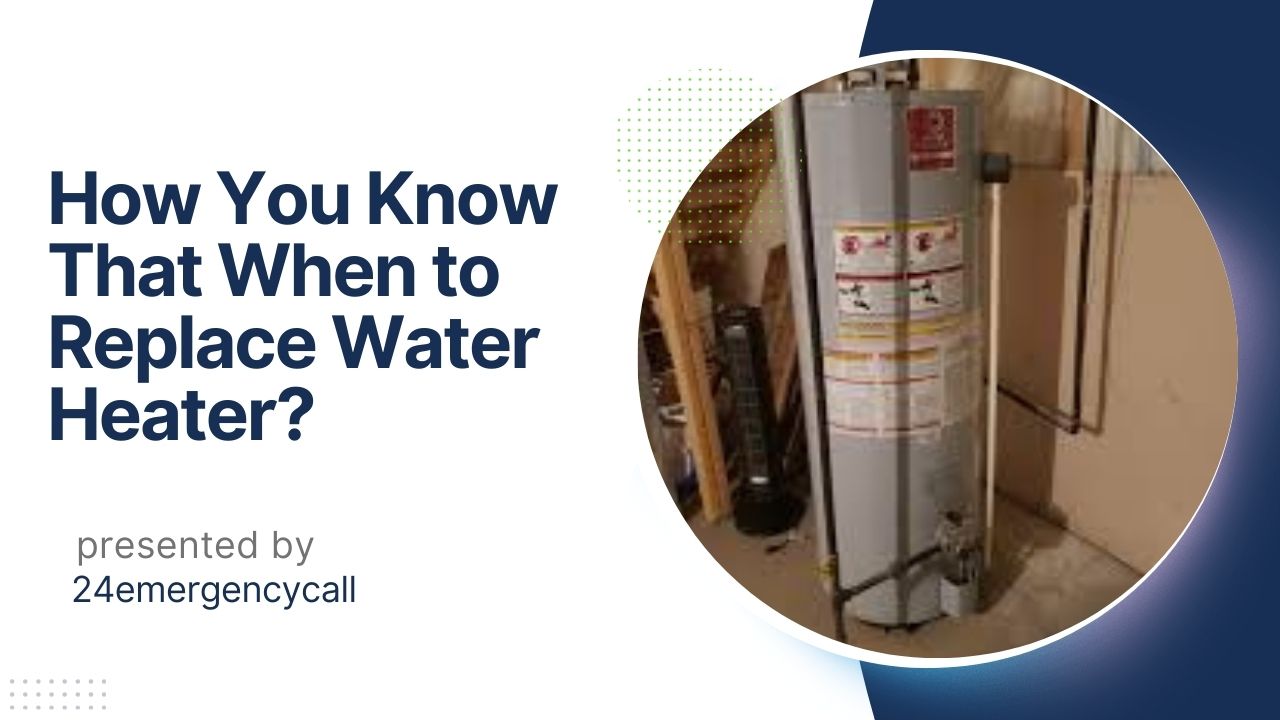Should I Replace Water Heater Before Selling House
When selling a home, many homeowners wonder if they should replace their water heater before putting it up for sale. As an essential appliance that provides hot water to the entire home, a working water heater can be a major selling point.
On the other hand, replacing it before selling involves an upfront cost that doesn’t always result in a return on investment. In this guide, we’ll explore the factors that can help you decide if replacing your water heater before selling your home is the best decision.
Why the Condition of Your Water Heater Matters in Home Sales

The Importance of First Impressions
First impressions are crucial in real estate. A well-maintained home, including appliances, can lead to a quicker sale and potentially higher offers. If your water heater is visibly old or unreliable, buyers may be wary and wonder about hidden repair costs. A new or well-functioning water heater can boost a buyer’s confidence in the overall condition of your home.
Buyer Expectations and Market Trends
In competitive markets, many buyers expect move-in ready homes with no immediate maintenance needs. A modern, efficient water heater can be an attractive feature, particularly in areas where buyers are willing to pay more for energy-efficient upgrades. However, in less competitive markets, where buyers are more focused on getting a good deal, replacing the water heater may not be as valuable.
Read More: Should I Replace My 13 Year Old Water Heater
Should I Replace Water Heater Before Selling House?
Replace it. It won’t net you an extra $1,000 on the sales price, but it will make your home sell faster, which in itself is worth replacing it. (Warning: unless you’re in a market like California, where subpar homes disappear from the market in a day and buyers are all in bidding wars.)
Factors to Consider Before Replacing Your Water Heater
1. Age and condition of current water heater
Typical lifespan: The average lifespan of a traditional tank water heater is about 8 to 12 years, while tankless models can last up to 20 years. If your water heater is nearing the end of its expected lifespan, replacing it could be a smart investment.
Signs of wear and tear: If your water heater is showing signs of rust, leaks, or reduced efficiency, replacing it can help avoid inspection issues during the sales process.
2. Replacement cost vs. potential ROI
Replacement cost: The cost to replace a water heater can range from $1,000 to $3,000, depending on the model and labor costs. A high-efficiency or tankless water heater can increase this cost, but it could also add value in the eyes of potential buyers.
Return on investment (ROI): Some studies indicate that energy-efficient upgrades can yield returns of up to 80% of the initial investment. However, this varies by region and buyer priorities.
3. Energy Efficiency Considerations
Modern water heaters are typically more energy efficient than older models. If your current unit is outdated, a newer model can reduce utility costs, which is a major selling point for many buyers.
Green Appeal: Buyers are increasingly interested in green features in homes, and energy-efficient appliances can contribute to your home’s environmental appeal. For environmentally conscious buyers, an efficient water heater could be a deciding factor.
4. Local Market Conditions
In a seller’s market, where demand is high and inventory is low, you may not need to replace your water heater to attract buyers. However, in a buyer’s market, where buyers have more options, investing in such improvements can make your home stand out.
5. Potential problems during inspection
If a water heater is near the end of its useful life, it could show up as a concern on a buyer’s inspection report, leading to potential negotiations or requests for repair credits. Replacing the water heater beforehand can eliminate these problems and speed up the sale.
Read Also: How You Know That When to Replace Water Heater?
Alternatives to Replacing the Water Heater

Tune-Ups and Repairs
If a complete replacement isn’t possible, having your water heater inspected and serviced by a professional can extend its life and improve efficiency. Services such as cleaning out sediment buildup, replacing the anode rod, or insulating pipes are effective ways to ensure the unit is in top condition for sale.
Offer a Home Warranty
Another option is to offer a home warranty that includes coverage for appliances, including the water heater. Buyers will feel more secure knowing that if the water heater or other appliances fail after purchase, they’ll have warranty coverage to reduce costs.
Also Read: Does Replacing Water Heater Increase Home Value
Important Things to Repair Before Selling a House
Here are some of the most important things you should consider repairing before selling your home. Opendoor buys and sells thousands of homes per month, and we’ve also highlighted some of the most common repair items our appraisers encounter.

Kitchen and Bathrooms
A home’s kitchen and bathrooms have the most mechanical systems, such as plumbing and electrical. That means they’re also most likely to suffer damage. Here are the components you should check:
Kitchen Appliances. Make sure the refrigerator, stove, dishwasher, and microwave are in good working order. Repair leaks and replace the refrigerant or freon in your refrigerator or freezer if necessary.
Cabinets. In both the kitchen and bathrooms, everything should be in good condition, free of water damage or rot. Cabinet doors and drawers should open and close smoothly. Fix loose hinges, uncover or replace stuck drawer tracks, and replace broken knobs or handles. You can do most of these tasks yourself, with a screwdriver and a trip to the hardware store.
If the cabinets are painted, make sure the paint isn’t chipping or peeling. If it is, sand them and apply a fresh coat. Cabinets that are badly damaged may need to be replaced, a task that may require a contractor unless you’re skilled at home renovations.
Sinks and faucets. Water fountains should be leak-free, and all drains should be working without clogs. The overflow drain, which prevents the tub from overfilling, should be in good working order. Hot and cold water options should work as indicated on the faucets.
Tubs and showers. Fixtures, such as the shower head, should be fully functional, and drains should be free of clogs. If the acrylic on a tub is peeling, you may need to resurface the tub or replace it. The exhaust vent, which removes steam from the shower, should be fully functional. Cracked shower tiles should be replaced.
Home Interior
Next, it’s time to take a look at other general interior surfaces.
Walls and ceilings. Repair nail holes and small dents and dings in drywall. If you see discoloration, such as water damage that’s already been repaired, repaint the walls. Painting is one of the cheapest and easiest ways to refresh a room. Massachusetts-based real estate agent Bill Gassett recommends removing wallpaper, since buyers are unlikely to share your style.
Flooring. From laminate to carpeting, everything should be in good condition. Replace floor tiles that are chipped or cracked, or repair scratched or dented hardwood. Replace torn carpeting or steam clean it, especially if you have pets.
HVAC. Your heating, ventilation, and air conditioning (HVAC) system should be in good working order, clean, and leak-free. Your thermostat should be working properly. If you have any doubts, hire an HVAC technician to perform a tune-up and give you an assessment of the condition of your system.
Water Heater. Similarly, your water heater should be in good working order and not leaking. All pipes should be insulated.
Smoke and Carbon Monoxide Detectors. Your detectors should be in good working order and less than ten years old. Test your detectors and replace batteries if necessary.
Electrical Panel and Breakers. Everything should be up to current codes. Specifically, replace your panels if you have Zinsco/Sylvania GTE and Federal Pacific brands. Call an electrician if your home has one of these brands. If you have an older system, such as one that uses a fuse box, you may also want to have that checked or upgraded, as it may be difficult for a new homeowner to find parts, or the system may be set up for modern use in a way it was not originally intended for, making it prone to problems.
Home Exterior
According to a 2018 “Cost vs. Value” analysis from Remodeling magazine, several exterior projects offer the highest return on resale value.
Here are some projects with a high rate of return that you might consider tackling.
Garage Door. Obviously, it must work. As does any remote control. The door must also meet all local codes and safety criteria. You may need to replace the mechanism if a coil spring is broken or if the door has large dings or dents.
Exterior Doors. Major dings or dents are unacceptable. Hardware such as door handles should be in good condition and weather stripping should be intact, and most homeowners can fix those issues themselves. Sliding glass doors should be properly aligned on the tracks. The door leading to the garage should be fire-rated and code-compliant. You may need to call a contractor to replace your doors or sliding door tracks.
Drainage. Yard drainage should slope away from the foundation. If water pools on the foundation when it rains, you may need to hire a contractor to grade the yard or remove concrete to fix the problem. Likewise, if downspouts remove rainwater at the foundation of the home, but there is no runoff, that is a problem.
Roof. The roof should not have any broken or missing shingles, tiles or ridge caps, as these components protect your home from water damage. Replace any problem spots immediately. Cracks, bubbles and blisters in the sealant are also common. Repair any damage to the underlayment, which is the layer beneath the roof shingles or tiles. Water damage inside can mean a roof leak, so if you see one, call a professional.
Bottom Line
Deciding whether to replace your water heater before selling your home depends on its age, condition, and the competitive nature of the market. If it’s old, inefficient, or showing signs of failure, replacing it could improve your home’s appeal and potentially increase its sale price. Conversely, if it’s in good condition, you can focus on other improvements. Ultimately, weigh the costs and benefits to make an informed decision.

